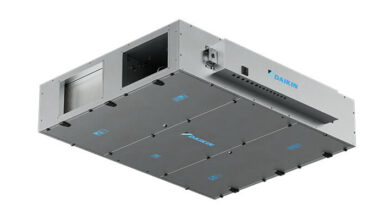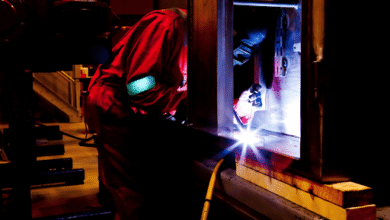Server Rental for Video Surveillance — Real Cases and Smart Setup

Have you ever wondered where all your security footage actually goes? Those hours of video from cameras watching your office, warehouse, or even your home — they have to be stored somewhere. And no, a small hard drive hidden under your desk won’t cut it for long. That’s where server rental for video surveillance becomes a surprisingly efficient, flexible, and affordable solution. Let’s unpack what it means, how it works, and what real businesses gain from it.
Why Rent a Server for Video Surveillance?
Imagine you own a small café chain. You install cameras in each branch — a smart move. But soon, your local storage fills up, and you start deleting old footage just to make room for new videos. Sound familiar? Renting a dedicated or virtual server for video storage removes this headache.
With a rented server, you store your surveillance data safely online. No physical maintenance, no burnt-out drives, and no fear of theft or damage. You simply log in and check your recordings from anywhere. That’s peace of mind you can literally access from your phone.
In fact, according to Statista (2024), over 68% of companies have already shifted their video archives to cloud or rented infrastructure due to reliability and cost savings.
Real-World Cases — When Renting a Server Becomes a Lifesaver
Case 1: The Logistics Company That Stopped Losing Cargo
A transport firm in Dnipro had cameras across its loading docks. Initially, footage was stored on-site, and every month something “went missing” — both data and goods. After switching to a remote VPS server rental, managers could track every shipment in real-time. Within two months, losses dropped by 30%, and employee discipline suddenly improved.
Case 2: The Apartment Complex With 50+ Cameras
A large residential complex in Kyiv used NVRs (network video recorders) for years. When they added more cameras, the recorders began crashing. By renting a dedicated physical server from DeltaHost https://deltahost.com/dedicated.html, the system stabilized. Residents can now review any incident from the past 60 days without buffering or downtime.
Case 3: The Small Retailer With a Big Data Problem
You’ve probably seen this one yourself — a small shop with one old PC “acting as a DVR.” When it breaks, everything’s lost. One local retailer decided to rent a cloud-based server for surveillance, configured automatic uploads, and never lost footage again. Bonus: electricity costs dropped since the noisy old PC was finally unplugged.
How to Set Up a Rented Server for Video Surveillance
Let’s be honest — setting up a camera system with remote storage can sound intimidating. But it’s actually straightforward once you break it into steps:
Step 1 – Choose the Right Server Type
You’ll typically decide between:
- VPS (Virtual Private Server): cheaper, good for small to medium setups (up to ~30 cameras).
- Dedicated Server: for large facilities, full performance control, supports heavy video loads.
Tip: Always check your camera bitrate and resolution to estimate storage needs. A 1080p stream at 2 Mbps can consume about 21 GB per day. Multiply that by your number of cameras — you’ll see why planning matters.
Step 2 – Pick the Right Storage Configuration
Your footage can be stored in different ways:
- Local storage (in the same data center) for fast access.
- Cloud backups for redundancy.
- Hybrid setups combining both (best of both worlds).
Many users prefer RAID-protected disks — if one fails, you don’t lose everything. It’s like having a parachute you never hope to use.
Step 3 – Connect Cameras to the Server
Most modern cameras support RTSP or ONVIF protocols, which makes integration simple. You only need to:
- Copy the RTSP stream link from your camera.
- Paste it into your surveillance software (e.g., Zoneminder, Blue Iris, Xeoma, or iSpy).
- Specify your rented server’s IP and port.
In a few minutes, your camera starts streaming directly to your rented server — securely, 24/7.
Key Benefits of Renting a Server for Surveillance
Let’s sum it up in one short list:
| Benefit | Description |
| Scalability | Add more cameras anytime without hardware upgrades. |
| Reliability | Data centers use redundant power and internet — zero downtime. |
| Security | Footage stored remotely is safe from theft, damage, or tampering. |
| Remote Access | View footage anywhere — from your phone, tablet, or PC. |
| Cost Efficiency | No need to buy expensive NVRs or maintain on-site hardware. |
Sounds appealing? That’s because it really is.
A Touch of Reality — When Servers Surprise You
Here’s a funny real-world twist. One client rented a powerful server just for four cameras — “to be safe.” Two months later, the storage barely hit 2% usage. When asked why, he said, “I thought each camera eats a terabyte per day!”
Moral of the story: renting gives you flexibility — you can always scale up or down. It’s like renting a car: take the small one for city errands, upgrade to a van when moving boxes. Why buy the biggest one right away?
Expert Tips for Choosing the Right Provider
When you look for a server provider, here’s what really matters (and what many forget):
- Uptime guarantee — at least 99.9%. Downtime means lost footage.
- Bandwidth — unlimited or high transfer limits to handle multiple video streams.
- SSD + HDD hybrid drives — fast access + large capacity.
- Data center location — choose one close to your cameras for smoother streaming.
- Support team availability — 24/7 help matters when your cameras suddenly go offline at 2 AM.
Providers like DeltaHost (Ukraine) offer tailored VPS and dedicated servers optimized for video surveillance — ideal if you need stability and fast setup.
Why Not Just Use Cloud Video Services?
Good question. Cloud services like Google Drive or Dropbox aren’t designed for continuous camera streams. They limit upload speed and lack live access tools. Renting your own server gives you full control, integration flexibility, and no hidden restrictions.
In other words, with a rented server — you’re the boss of your data.
Conclusion — Keep Your Eyes Open, but Smartly
So, should you rent a server for video surveillance? Absolutely — if you value control, reliability, and peace of mind. Whether you’re a business owner protecting your assets, or just someone who wants to check in on their home while traveling, it’s the smartest, most scalable approach.
If you’re ready to move beyond fragile NVRs and dusty hard drives — explore DeltaHost’s server rental options https://deltahost.com/dedicated.html and find a setup that fits you perfectly.




